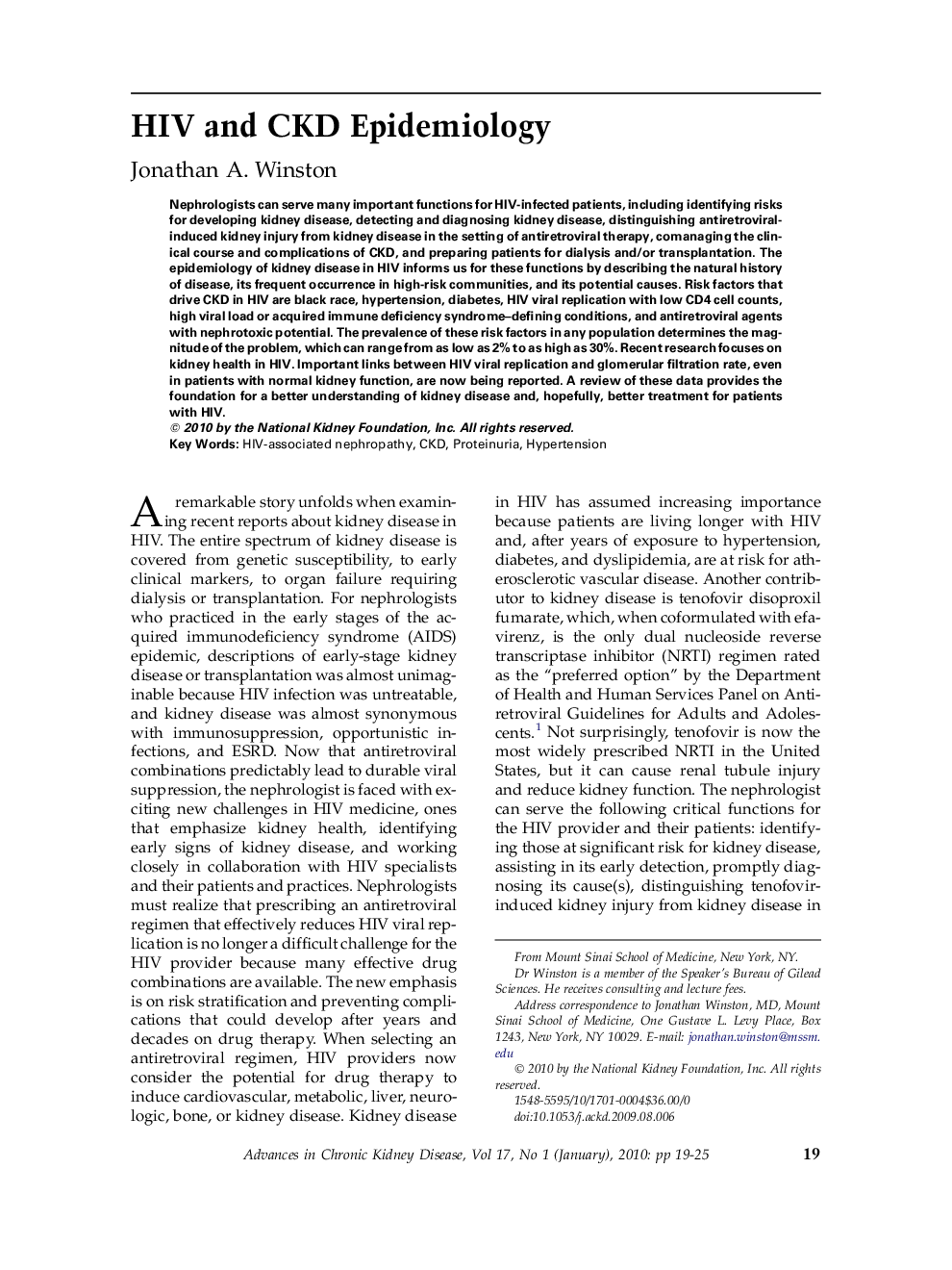| Article ID | Journal | Published Year | Pages | File Type |
|---|---|---|---|---|
| 3846898 | Advances in Chronic Kidney Disease | 2010 | 7 Pages |
Abstract
Nephrologists can serve many important functions for HIV-infected patients, including identifying risks for developing kidney disease, detecting and diagnosing kidney disease, distinguishing antiretroviral-induced kidney injury from kidney disease in the setting of antiretroviral therapy, comanaging the clinical course and complications of CKD, and preparing patients for dialysis and/or transplantation. The epidemiology of kidney disease in HIV informs us for these functions by describing the natural history of disease, its frequent occurrence in high-risk communities, and its potential causes. Risk factors that drive CKD in HIV are black race, hypertension, diabetes, HIV viral replication with low CD4 cell counts, high viral load or acquired immune deficiency syndrome-defining conditions, and antiretroviral agents with nephrotoxic potential. The prevalence of these risk factors in any population determines the magnitude of the problem, which can range from as low as 2% to as high as 30%. Recent research focuses on kidney health in HIV. Important links between HIV viral replication and glomerular filtration rate, even in patients with normal kidney function, are now being reported. A review of these data provides the foundation for a better understanding of kidney disease and, hopefully, better treatment for patients with HIV.
Related Topics
Health Sciences
Medicine and Dentistry
Nephrology
Authors
Jonathan A. Winston,
